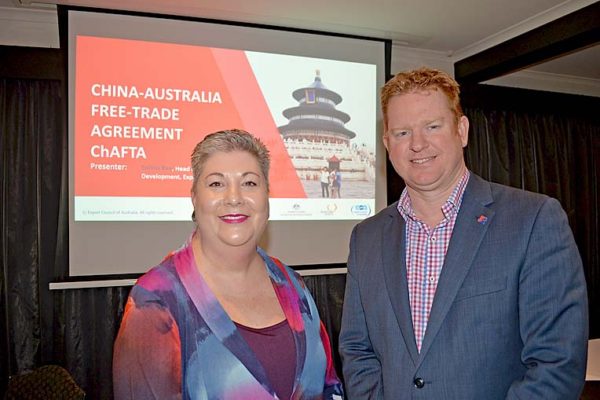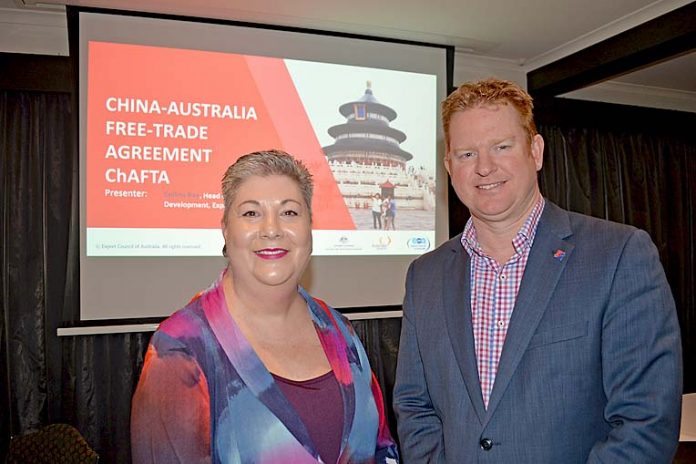
EXPORTING local meat and livestock to China from a number of suppliers under one Limestone Coast banner was among many ideas floated at a China business training program this week.
Around 30 business leaders from across the South East and Victoria attended a China-Australia Free Trade Agreement (ChAFTA) half-day training workshop at the Commodore on the Park on Tuesday, where key speakers from the Australia China Business Council (ACBC) and Export Council of Australia guided attendees through the process of classifying goods for export, understanding China’s rules of origin and using tools and resources.
The ChAFTA will provide Australian businesses with unprecedented access to the China market, an opportunity ACBC South Australian president and national vice president Sean Keenihan believes will benefit local industries.
“We are focused on developing content for these programs and providing networking opportunities within the context of presenting new information, new ideas and hopefully inspiring business leaders to think outside the square on how to tap into this market,” Mr Keenihan said.
“We hope there is more demand in the South East for us to take this discussion further – there is certainly the potential for a lot more business and trade with China to happen here and we believe a coordinated approach will reap the most benefits.
“Upon full implementation of the ChAFTA, up to 98pc of Australian goods will enter China duty free.”
Familiar with the complexities and rewards of doing business with China, Rodger Fromm of Millicent has held a license to export meat and livestock to China for around 15 years.
Mr Fromm, who operates Bonegilla Exports, attended the workshop to learn more about tariff reductions under the ChAFTA.
He believes the region has the capacity to establish a Limestone Coast brand for meat and livestock export.
“I really believe there is the potential to have a number of suppliers export under one Limestone Coast banner,” Mr Fromm told The Border Watch.
“That would allow smaller suppliers to break into the market under one strong brand and allow continuous supply year round, which is something they value in China.
“Once you’ve established you’re market over there it’s important to have the product available year round – if you don’t have that continuous supply the demand for your product will disappear and you will lose your place on the shelves.”
Mr Fromm said providing a certificate of origin for livestock was one of the most difficult aspects of exporting to China.
“When you are exporting 400 goats you need to provide a certificate of origin showing three generations breeding history for each individual goat,” he said.
“If you only have one certificate of origin to cover all the goats you need to pay extra tariffs.”
ECA’s Collins Rex echoed Mr Fromm’s sentiments during her presentation.
“There are certainly non-tariff barriers and cultural nuances when doing business with China,” Ms Rex said.
“The key is if you want the market you cannot be precious and you will need to adapt.”








